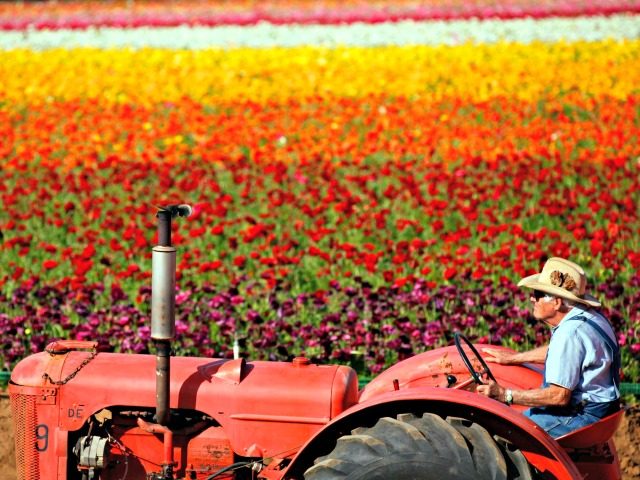The leaders of agricultural trade groups from Mexico, Canada, and the United States spoke at the National Press Club on Thursday to send a message to the negotiators from the three countries as they decide the future of the 23-year-old North America Free Trade Agreement (NAFTA).
“Do no harm,” Vincent “Zippy” Duvall, president of the American Farm Bureau Federation, said at the press conference.
Duvall was joined at the press conference by Bosco de la Vega, president of Mexico’s national agricultural council and Ron Bonnett, president
of the Canadian Federation of Agriculture.
All three agreed the trade deal could be improved, but they want negotiators to consider how it had benefited farmers and ranchers. In the United States, for example, annual agricultural exports to Canada and Mexico went from $8.9 billion in 1993 — the year before NAFTA — to $38.1 billion in 2016.
The United States Department of Agriculture’s FY 2017 Exports Forecast released in May expected the U.S. to have a trade surplus of $22.5 billion.
President Donald Trump has said he wants major changes to NAFTA that would reduce the U.S. trade deficit in goods with Canada and Mexico.
United States Trade Representative Robert Lighthizer confirmed that in his remarks at the opening round of discussions in Washington, D.C. on Wednesday.
“I want to be clear that [Trump] is not interested in a mere tweaking of a few provisions and a couple of updated chapters,” Lighthizer said. “We feel that NAFTA has fundamentally failed many, many Americans and needs major improvement.”
“Lighthizer acknowledged many in the U.S. agriculture sectors have benefited from increased trade with Canada and Mexico, their two biggest export markets, under the pact,” Politico reported.
“But for countless Americans, this agreement has failed,” Lighthizer said. “We cannot ignore the huge trade deficits, the lost manufacturing jobs, the businesses that have closed or moved because of incentives, intended or not, in the current agreement.
At the press club, the trio from Mexico, Canada, and the USA ceremoniously signed a letter they are sending to Lighthizer, Chrystia Freeland, minister of foreign affairs for Canada’s House of Commons and Ildefonso Guajardo Villarreal, Mexican secretary of economy to express the vital interests to farmers and ranchers in all three countries tied to NAFTA’s future.
Those improvements, outlined in the letter, include:
- Seeking increased and improved regulatory alignment
- Improving the flow of goods at border crossings
- Further alignment of sanitary and phytosanitary measures
• Elimination of technical barriers to trade
• Adapting the agreement to technological advances since the implementation,
such as digital trade
“Agriculture in each NAFTA country would suffer greatly from disruptions to the trading relationships that have developed over the last 23 years,” the letter states. “With the productivity of agriculture growing faster than domestic demand, Canadian, Mexican and U.S. farmers and ranchers rely on export markets to sustain prices and revenues.”
All three signatories to the letter said they “are committed to preserving and expanding upon the gains our sector has achieved within the North American market and ensuring that a modernized NAFTA continues to be a success story for all farmers and ranchers.”

COMMENTS
Please let us know if you're having issues with commenting.